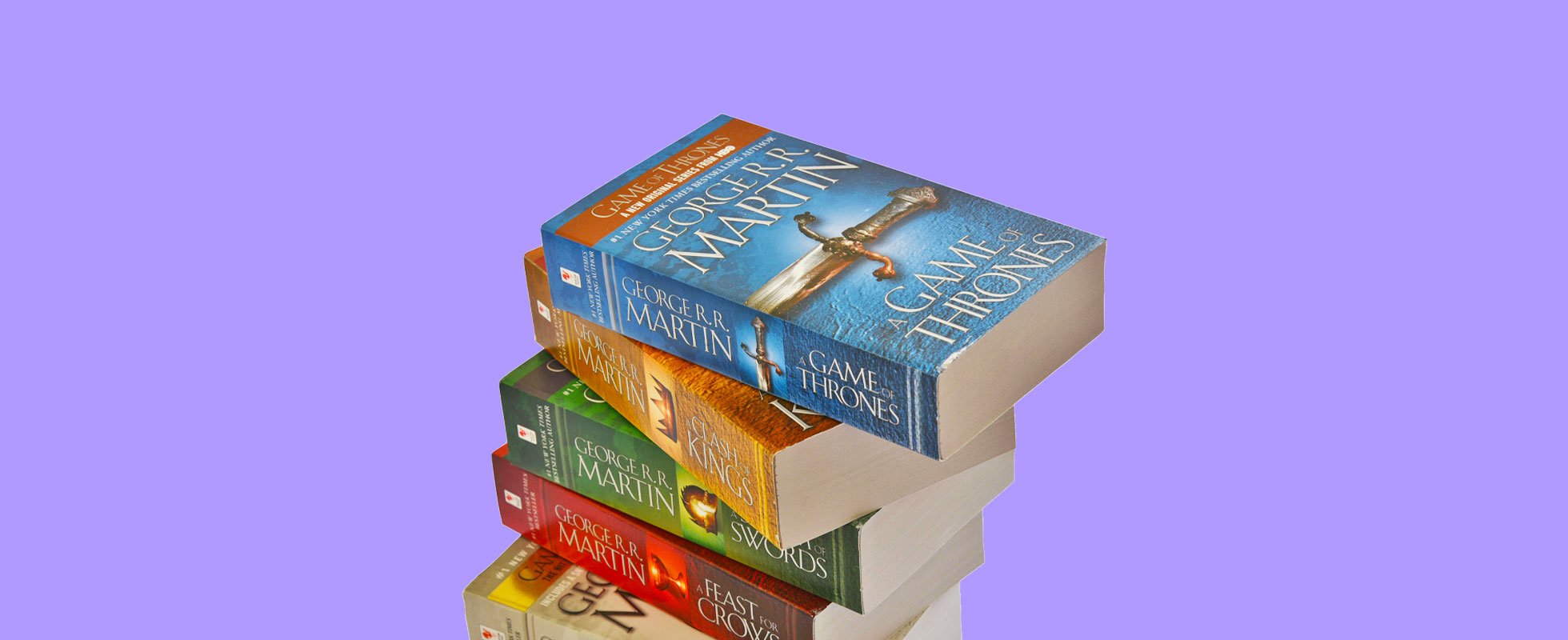The fantasy genre as we know it today can trace its lineage back to ancient myths and folklore, which were then translated and shared across cultures and generations. Humans have always been fascinated by magical creatures and heroic quests and battles. For hundreds of years, this very fascination has shaped cultural traditions and influenced epic tales ranging from Greek mythology to Norse sagas.
Over time, fantasy literature evolved into a distinct and popular genre. Writers such as J.R.R. Tolkien and C.S. Lewis were instrumental in shaping it into its modern form. Tolkien's The Lord of the Rings delved into vast, intricate worlds, while Lewis' The Chronicles of Narnia used allegory to anchor its wondrous setting.
Today, fantasy continues to captivate readers not only with its requisite fantastical elements, but also with its portrayals of complex humanity, societal struggles, and relevant philosophical ideas.
“The Lord of the Rings” by J.R.R. Tolkien
Deeds will not be less valiant because they are unpraised.
Tolkien’s most enduring work is an indisputable cornerstone of fantasy literature, considered by many to be the greatest epic fantasy of all time. And although it’s often called a trilogy, The Lord of the Rings was intended to be seen as one novel. Nonetheless, it was originally published over the course of 1954 and 1955 as three separate volumes: The Fellowship of the Ring, The Two Towers, and The Return of the King.
Set in the richly imagined fictional land of Middle-earth, with plenty of fantasy hallmarks such as dark magic and otherworldly creatures, the series also features meticulous linguistic inventions and profound cultural insights that set a new standard for immersive fictional worlds. Tolkien's masterpiece manages to explore timeless human struggles, too: Its themes of friendship, heroism, and the battle between good and evil have captivated readers since its inception, both on the page and on the screen.
“A Wizard of Earthsea” by Ursula K. Le Guin
The wise man is one who never sets himself apart from other living things.
Before there was Harry Potter, there was Ursula K. Le Guin’s A Wizard of Earthsea. Published in 1968, it was the first of six beloved Earthsea titles that follow the journey of Ged, a young wizard who learns the full responsibility of his powers. The novel is widely credited with introducing the concept of “true names” into the genre.
This concept — that all things have a hidden “true name” that represents its real essence or identity, and that knowing it grants the ability to control the name’s owner — has become a seminal idea in fantasy, inspiring other authors to explore its deeper implications within their own magic systems. Le Guin’s creation of Earthsea itself, a realm characterized by cultural diversity and interconnected islands, as well as her themes of identity, morality, and internal struggle, have left an indelible mark on subsequent generations of fantasy readers and writers.
“A Game of Thrones” by George R.R. Martin
Death is so terribly final, while life is full of possibilities.
Initially published in 1996, George R.R. Martin’s A Game of Thrones — the first novel in the A Song of Ice and Fire series — challenged traditional fantasy tropes with its trademark moral ambiguity. Its plotlines are unpredictable and often surprising, leaving readers unsure of which characters to root for and of who might survive.
Its departure from the typical heroic fantasy formula ushered in a new era of grittier, more suspenseful storytelling. The vividly realized world of Westeros, with its intricate history, cultures, and power struggles, set a benchmark for epic fantasy world-building. Its complex characters and the empathy they evoke, by contrast, create a rare sense of realism in the genre that has transformed it into a generational favorite.
“The Lion, the Witch and the Wardrobe” by C.S. Lewis
If ever they remembered their life in this world it was as one remembers a dream.
Contemporary children’s fantasy owes a lot to The Lion, the Witch and the Wardrobe. The 1950 C.S. Lewis novel, the first published in the seven-volume Chronicles of Narnia series, takes readers on a magical adventure to the enchanted land of Narnia — accessed, of course, via a secret door in the back of a wardrobe.
Although the novel is not without its criticisms, namely for its portrayal and treatment of its female characters, the allegorical undertones (largely based in Christianity) and memorable characters, including the mysterious talking lion, Aslan, built an enduring framework for adventure and morality in fantasy literature.
“The Eye of the World” by Robert Jordan
Take life as it comes. Run when you have to, fight when you must, rest when you can.
The Eye of the World is the first book in Robert Jordan's epic fantasy series The Wheel of Time. Despite its seemingly simple premise and (at first) straightforward protagonist, the plot takes some unconventional twists — especially when our hero is prophesied to inflict harm.
Magic is deeply intertwined with politics and cultural histories play crucial roles in the 1990 novel, but its detailed and descriptive world-building shines brightest. Although the Wheel of Time series has been the subject of criticism for its narrative lulls and outdated depictions of women, Jordan’s work still holds its place as a highly revered feat of high fantasy.
“The Way of Kings” by Brandon Sanderson
Somebody has to start. Somebody has to step forward and do what is right, because it is right.
Though it was the first installment of his epic fantasy series The Stormlight Archive, The Way of Kings wasn’t Brandon Sanderson’s first novel. He’d already published several others by 2010, including the first of the highly acclaimed Mistborn series, but The Way of Kings certainly made him an authorial force to be reckoned with in the fantasy genre.
Set on the planet Roshar in Sanderson’s signature Cosmere universe, The Way of Kings weaves in themes of social hierarchy, honor, and morality against a backdrop of war, magical abilities, and enigmatic forces known as Highstorms. At more than 1,000 pages, this novel is truly an epic fantasy, one that showcases Sanderson’s impressive character development abilities: Kaladin, Shallan Davar, and others display a commitment not only to overcoming their own struggles, but to helping others do the same.
Featured image credit: CBW/ Alamy Stock Photo
















